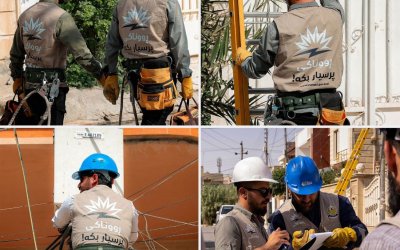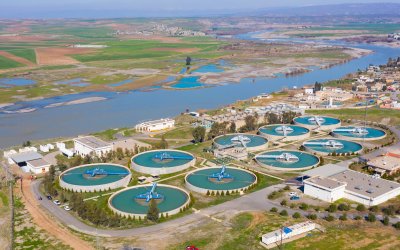Climate change will create new risks and increasingly test the resilience of countries across the Middle East region, and Iraq is no exception. Intensified droughts have already exacerbated water scarcity problems across the country. Iraq’s water challenges, however, are not primarily due to climate change, at least not yet. Weak environmental and water governance within Iraq, particularly over the past two decades, has led to disproportionately high losses of water and contamination across the overall system and exposed the country’s antiquated water and environmental infrastructure. Industrial polluters contaminating the country’s water supply largely go unpunished, while large-scale construction projects dig wells outside state approved limits. Water pipe networks, drainage systems, and sewage treatment facilities are poorly maintained and often entirely inoperable. The complexity and high price tag for environmental/water infrastructures have pushed them further down the priorities list of consecutive governments. The government of Prime Minister Mohammed Shia al-Sudani has emphasized the importance of environmental and water resources, and vowed to lower emissions and combat pollution, both of which are greatly needed. However, it remains to be seen whether these pronouncements will be realized both in policy and budgetary priorities. Previous governments have made similar manifesto pledges but made little progress.
Can civil society and youth play a role in driving change in the environmental governance system? IRIS launched the Youth for Accountability in Environmental Governance program to answer that very question. Building upon the energy of the already emerging new generation of environmentally minded citizens, the pilot program brought together young leaders (ages 20 to 30) who are striving to hold the government of Iraq accountable and make a meaningful impact in preserving water resources, reducing water and environmental pollution, and improving environmental governance generally. The objective of the program was to strengthen the knowledge of emerging leaders about Iraq’s complex environmental governance system, enabling them to navigate the inner workings of the relevant government departments, develop policy approaches, and identify gaps for grassroot evidence-based advocacy to promote and enhance accountability. Drawing on the discussions and deliberations in the two workshops, this report provides an overview of the challenges and opportunities, key insights and takeaways, and the prospects for new approaches towards accountability in environmental governance.
Click here or the image below for the full report.






